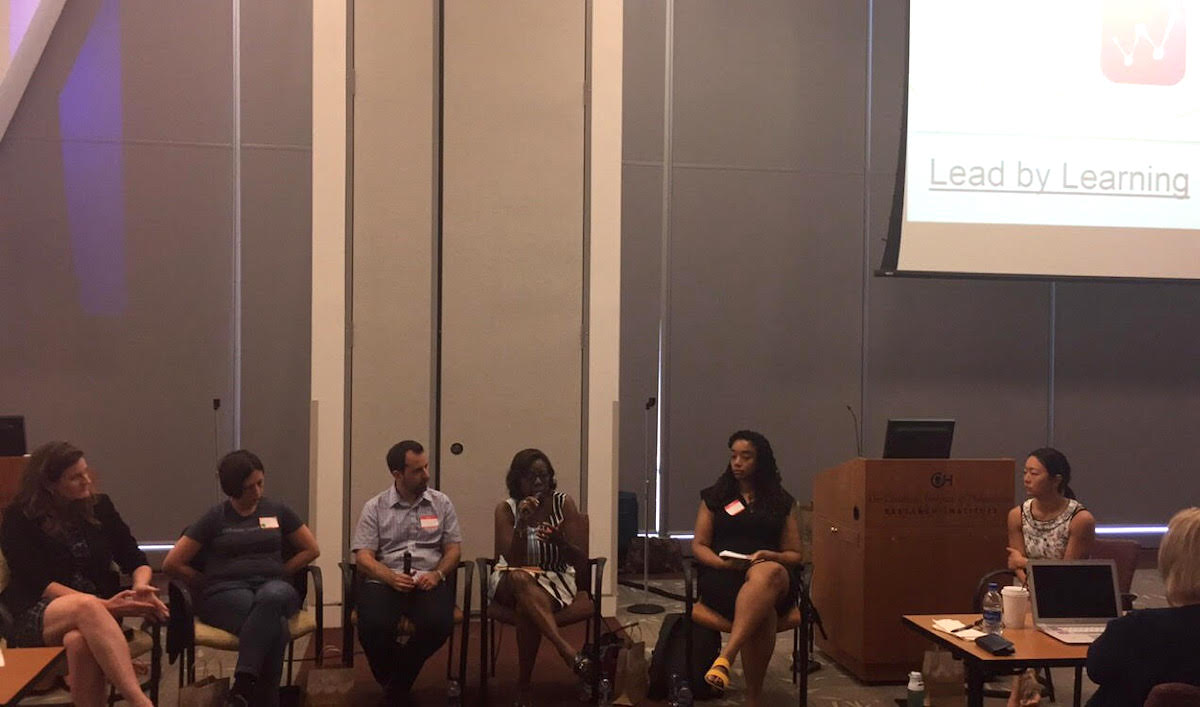Tech has a wage inequality problem.
A 2019 report from San Francisco recruiting firm Hired states that “60% of the time men are offered higher salaries than women for the same job title at the same company” — and “companies offer women 3% less on average than men for the same roles.”
Women of color are disproportionately affected. Of those covered in the cited report, white and Asian women earn $0.97 for every dollar white and Asian men do, while Hispanic women earn only $0.91, and Black women earn $0.89. (The report does not give statistics about salaries of those in tech who do not identify as male or female.)
While wage inequality in tech is a systemic issue whose resolution requires action beyond that of the individual employee, negotiation is a valuable career skill for all to learn.
The Philadelphia chapter of Women in Data will host a workshop this Thursday, Sept. 12, with the goal of bolstering attendees’ negotiation skills.
The workshop will be facilitated by Burnett “B.B.” Coke, principal consultant at Silverback Human Resources. Coke has 20 years of experience in negotiation work, including as a mediator with the Department of Labor, a university lecturer and a writer.

About the causes of wage inequality in tech, Coke says there are external factors like personal biases and systemic discrimination. But there can also be “internal sabotage” at play for any individual in salary negotiations, which the workshop will focus on.
“It’s about making them see that it’s costly for them for you to lose,” he said. “Labor is a commodity, and you are the priority number one commodity you invest in. You need to ensure returns.”
Coke also advises folks to understand the position of the opposite party.
“Try to find common ground with the person or institution you’re negotiating with,” he said. “Do not go in with a hard and fast position, ‘My way or the highway’ — It may be the highway.” (Carolyn O’Hara concurs in the Harvard Business Review, stating that the factors influencing the other person’s point of view may not be obvious.)
Coke also cautions that not every negotiation attempt will be successful the first time around.
“If you’re going into negotiations, go in knowing sometimes you withdraw your position gracefully and reapproach it another time,” he said. “One size does not fit all.”
He also recommends preparing for negotiations by getting to know the person you’re negotiating with.
“It’s all about relationships,” he said. “Chances are what you are asking for is possible, otherwise you would not be asking for it. But is it probable at this point in time? You need to ensure that you’re creating the environment for yes.”
Creating that environment may be easier in theory than in practice. For example, research shows that being nice is not always a good idea when entering negotiations. Workshop attendees will explore what it means to create that environment through several instructional role-playing scenarios.
“To be successful in the data field, it is important to have strong technical skills as well as soft skills,” said data analyst and Philadelphia Women in Data chapter lead Rajvi Mehta. “In my experience, you can learn the math easily. But what takes continuous practice is improving soft skills. Women in Data Philadelphia is providing an opportunity for our community to learn and practice these soft skills in a safe and encouraging environment.”
Women in Data plans to host other soft skills workshops in the future, including a Toastmasters workshop on public speaking.
Register for Thursday's event






